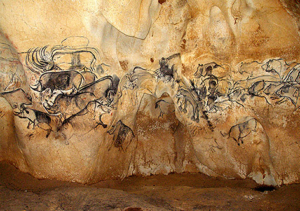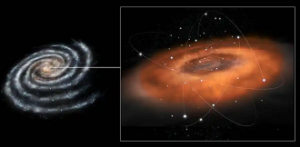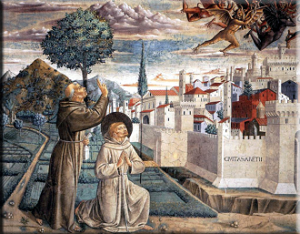
Arquivo para a ‘SocioCibercultura’ Categoria
Meditate or pray
There is no space in contemporary life for time spent caring for one’s inner life, the hustle and bustle and demands of the “society of tiredness” pushes man to an action that is not always meaningful, in many cases a space of time is needed for the personal life.
the hustle and bustle and demands of the “society of tiredness” pushes man to an action that is not always meaningful, in many cases a space of time is needed for the personal life.
It may seem like alienation, or even something useless, but the countless human illnesses that only grow in society: depression, anxiety and even the use of chemical drugs are often the result of a process of inner emptiness that is not filled, of course there are cases that They are purely clinical and require specialized care.
The moment of conflicts and increased social tension only aggravates these phenomena of modern man, one of the processes that has been faced socially is that of treatments aimed at greater physical and mental health, public policies are necessary for this.
However, those who are healthier, in everyone there is always a gap of emptiness to be filled, must also take care that the “inner” life does not succumb to the pressure of a complex social life with constant dangers.
Therefore, care for inner life, in addition to physical health, must pay attention to human aspects that are fundamental, one of them is the use of meditation, prayer or praying, it depends on the type of worship each person has, but everyone has this need. .
In biblical passages in which processes of great public dialogue occur, whether between prophets, judges, kings or oracles, there is always a space reserved for the sacred, man before the infinite and for those who believe, before God
The passage in which the parable of the widow who insists that an unjust judge handle her case is told, is the path not of social justice as it may seem, but to say the fact that those who ask God for their “case” will be listen to the unjust judge, so that the widow does not trouble him any more.
The passage says (Luke 18:2-8):
“In a city there was a judge who did not fear God and respected no man. In the same city there was a widow, who came looking for the judge, asking: ‘Give me justice against my adversary!’ For a long time, the judge refused. Finally he thought: ‘I do not fear God, and I do not respect any man. But this widow is already annoying me. I will give her justice, so that she will not attack me!’” And the Lord added: “Listen to what this unjust judge says. And God, will he not give justice to his chosen ones, who cry out for him day and night? Will it make them wait? I tell you that God will give them justice very quickly. But when the Son of Man comes, will he still find faith on the earth?”
Prayer is a request to the just God to listen to the soul and calm the inside of the person who prays it.
Contemplating or searching for nothing
Byung-Chul Han, in his essay on contemplation, gives a cruel sentence to Eurocentric Western knowledge: “knowledge cannot fully portray life. The entirely conscious life is a dead life” (Han, 2023, p. 29) and is supported by nothing more than Nietzsche in the context of a “new enlightenment”, one that for Heidegger opens a clearing of Being, albeit from a different perspective.
gives a cruel sentence to Eurocentric Western knowledge: “knowledge cannot fully portray life. The entirely conscious life is a dead life” (Han, 2023, p. 29) and is supported by nothing more than Nietzsche in the context of a “new enlightenment”, one that for Heidegger opens a clearing of Being, albeit from a different perspective.
Quoting Nietzsche, Han writes: “it is not enough that you understand in what kind of ignorance human beings and animals live; you also need to have the desire to not know and learn it. You need to understand that in this type of ignorance life itself would be impossible, under which the living being is preserved and flourishes: a great and solid bell of ignorance must be around him” (quoting Nietzsche, pages 29-30) .
He clarifies that the ultimate objective of a “master” is “to reach a state in which the will resigns itself. The master exercises in order to eliminate the will.” (page 31)
It states on the next page that it cites a parable made by Walter Benjamin “Don’t forget the best” in which he outlines the idea of a happy life, it deals with a businessman who has always carried out his life with precision and zeal, but at a certain moment he throws his clock out.
Then he starts to arrive late and things start to happen without his intervention, and they make him happy, it now turns out to be a “path to heaven”, things happen now when he least expected it, “friends visit him when they least thought of him” and remembers the legend of a little shepherd boy who is allowed on “one Sunday” to enter the mountain with his treasures, with an enigmatic instruction: “don’t forget the best” (page 33).
Benjamin’s parable of inactivity ends with these words: “At this time he was quite well off. He finished few things he had started, and didn’t consider anything finished” (page 33).
The age of hyperinformation, of fatigue, is not a time to search for the truth of being, for what we really are culturally, socially and spiritually; It is a time of searching for nothingness, in times like this, prophets, oracles, monks and sages emerged who fled this temporal void, to find themselves in an infinite totality, one that contemplates all being.
Byung-Chul Han wrote: “those who are truly inactive do not assert themselves. He discards his name and becomes nobody”, it is not nihilism, it is a reunion with the truth that everyone looks for in things and does not find them if they do not look at themselves, at their inner emptiness and their inactivity.
There will be a time when everyone will be looking for the truth, they will say it is here or there and they will no longer find it, it will not be an end, but rather a “new enlightenment”.
HAN, Byung-Chul. (2023) Vita Contemplativa or about inactivity. Trans. Lucas Machado. Brazil, Petrópolis: Vozes.
Inform, symbol and connect
What was missing in the text of Crisis of Narration, there is also something wrong in “Infocracy: digitalization and the crisis of democracy in philosophy” (2022) of Byung-Chul, the idea that information is in itself incomplete, is present in another book entitled Vita Contemplativa (ed. Vozes, 2023) because there, returning to being, one can find how form becomes narration within being, and becomes in-form.
there is also something wrong in “Infocracy: digitalization and the crisis of democracy in philosophy” (2022) of Byung-Chul, the idea that information is in itself incomplete, is present in another book entitled Vita Contemplativa (ed. Vozes, 2023) because there, returning to being, one can find how form becomes narration within being, and becomes in-form.
An excerpt from this book says: “The loss of shared feeling accentuates the lack of being. The community is a symbolically mediated totality. The symbolic narrative void leads to the fragmentation and erosion of society.” (HAN, 2023, p. 91-92). (emphasis added)
Thus recognizing this aspect of the need for being as a symbolic void, which the contemporary narrative in general does not contemplate due to its informational vices, at the same time the author states: “The human being, as a symbolon, longs for a sacred and restorative totality” (page 92).
The term symbolon appears prominently because the author uses it based on a reading of Plato’s Banquet, where Aristophanes remembers that this broken piece of being, which for him was initially spherical and was broken, has this broken piece with a “symbol”.
Now if symbol is a part, united to another part we form a totality, not just in a community, but in every “sacred and restorative totality”, where there are men united for a good and just cause.
Narrative and information in this context, where the part is united, as an important principle defended by Edgar Morin said: “It is necessary to replace a thought that isolates and separates with a thought that unites and distinguishes”, thus the union of distinct “symbols” and that are part of contemporary cultures and peoples.
Thus, the ontological information (proper to being) linked to the context of the narration in its time and the object of thoughts within a diversity, are not a reason for fragmentation but rather for a universe that unites us and makes us more “whole” within our lives. communities.
Contemporary hyperactivity, which not only but also the digital world can lead us to, is itself a world that rejects internalization, meditation and thus, narration itself.
The author writes about this interiority: “Active life, with its pathos of action, blocks access to religion” (page 154), action is part of religious life as much as lay life, what differentiates is that in addition to prudence, our reflections from last week, can lead to a different, fair action that leads to happiness and fulfillment different from pure “action”.
Pathos, to clarify, is part of the Greek triad “ethos, pathos and logos”, while ethos persuades us through character, or by whoever narrates, if this is worthy of faith, logos persuades us through logical (broad) reason and pathos by feelings caused by sadness or joy, love or hate, and so often without going through reason and ethics.
HAN, Byung-Chul. (2023) Vita Contemplativa or about inactivity. Trans. Lucas Machado. Brazil, Petrópolis: Vozes.
Wars and narratives
The recently released book, in Portuguese,  “The crisis of narration” (ed. Vozes, Brazil), by Byung Chul Han, more than a discussion of the crisis of literary aesthetics with Walter Benjamin and philosophical with Hegel, which are the contours of the book, the author comes across the republic of Weimar and its political aspects.
“The crisis of narration” (ed. Vozes, Brazil), by Byung Chul Han, more than a discussion of the crisis of literary aesthetics with Walter Benjamin and philosophical with Hegel, which are the contours of the book, the author comes across the republic of Weimar and its political aspects.
Officially known as the German Reich, it dates back to the period from November 9, 1918 to March 23, 1933, a constitutional federal republic in Germany, but which had nationalist and warlike aspects that led Germany to two wars.
Chul Han’s book is timely due to the war climate that is gradually being established and with different narratives and interpretations that lead to an escalation of war, speaking of peace, the same forces that reinforce the war budget, call for an immediate ceasefire.
It is clear to a good reader that a narrative is implied in each speech that tries to justify the war and the death of innocents, whether in Gaza or in Ukraine.
The narratives disguise their war celebrations, at the same time they justify genocides and the most horrific war crimes, when asked they respond with cynicism: “it’s war”, and thus they think they are justified.
Most likely, all of this was prepared in the midst of the pandemic, an opportune moment for those who imagine that measuring forces will create “a new world” and that peace will come as in the Roman Empire, through the submission or slavery of a people.
The details of the war are, for opportunists, details that can be reviewed by articulating this or that narrative, the death of innocent civilians, the destruction of basic means of subsistence (water, energy and food) must always be condemned and must not be admitted.
They are important humanitarian corridors (photo), but they should not only enter Gaza, they should enter where there is war and in speeches at the UN.
It is necessary to defend peace wherever there is war, so the narrative can be true
Homo economicus and the reduction of Being
Still on the Human Identity Card, chap. 2 of the book Terra-Pátria by Edgar Morin, after a long speech on the prehistoric issue, there are already new advances and discoveries in this sense, such as the Chauvet Cave (discovered by amateur cavers in 1994, including Jean-Marie Chauvet) , show that what is called human subjectivity is something present and intrinsic in man that makes us rethink his “genetic” origin.
book Terra-Pátria by Edgar Morin, after a long speech on the prehistoric issue, there are already new advances and discoveries in this sense, such as the Chauvet Cave (discovered by amateur cavers in 1994, including Jean-Marie Chauvet) , show that what is called human subjectivity is something present and intrinsic in man that makes us rethink his “genetic” origin.
This cave from 32 thousand years ago (photo), from the Paleolithic period, shows through the paintings and environments of a cave that man, even if primitive, had feelings that were far superior to what we think dated back to our era.
Morin shows the fragmentation of this vision of man’s being: “Man’s biological characteristics were discussed in biology departments and medicine courses; psychological, cultural and social characteristics were divided and installed in the various departments of human sciences, so that sociology was unable to see the individual, psychology unable to see society, history accommodated itself apart and economics extracted from the Homo sapiens demens the bloodless residue of Homo economicus.” (MORIN, 2003, p. 61)
Philosophy can only “communicate with humans in experiences and existential tensions such as those of Pascal, Kierkegaard, Heidegger, without however ever being able to link the experience of subjectivity to anthropological knowledge” (idem), and only in the 1950s -60 thoughts appear about “the first approaches to the universal dialectic between order, disorder and organization…” (ibidem) and which will lead us to the basis of a fundamental anthropology.
Morin launches 5 essential points to get out of planetary agony: “• we are lost in the cosmos; • life is solitary in the solar system and probably in the galaxy; • the Earth, life, man, consciousness are the fruits of a singular adventure, with astonishing adventures and leaps; • man is part of the community of life, although human consciousness is solitary; • the community of humanity’s destiny, which is specific to the planetary era, must be inscribed in the community of terrestrial destiny.” (MORIN, 2003, p. 63).
Morin launches 5 essential points to get out of planetary agony: “• we are lost in the cosmos; • life is solitary in the solar system and probably in the galaxy; • the Earth, life, man, consciousness are the fruits of a singular adventure, with astonishing adventures and leaps; • man is part of the community of life, although human consciousness is solitary; • the community of humanity’s destiny, which is specific to the planetary era, must be inscribed in the community of terrestrial destiny.” (MORIN, 2003, p. 63).
Morin’s thought is not a treatise on humanity, but a warning of the dangers that this false imperative economic, power and environmental disaster adventure has led us to.
MORIN, E. and Kern, A.B. Terra-Pátria. Trans. by Paulo Azevedo Neves da Silva. Brazil, Porto Alegre: Sulina, 2003.
Terrestrial identity and the black hole
Chapter 2 of Edgar Morin’s book is “The Terrestrial Identity Card” where he states that after the discoveries of astrophysics, biology, paleontology, ideas about the life of the universe, the nature of the Earth and man’s own life were “subverted in the 1950s-1970s” and we still didn’t have James Webb and the discovery of the ties between homo sapiens and Neanderthals.
Terrestrial Identity Card” where he states that after the discoveries of astrophysics, biology, paleontology, ideas about the life of the universe, the nature of the Earth and man’s own life were “subverted in the 1950s-1970s” and we still didn’t have James Webb and the discovery of the ties between homo sapiens and Neanderthals.
“Afterwards, with Copernicus, Kepler, Galileo, the Earth stopped being the center of the universe and became a round planet around the Sun, like the other planets” (page 43) and seemed to “witness the perfection of its divine creator” for order and regularity, until an expanding universe was discovered based on Hubble’s observations of the separation of stars in 1923, the astrophysicist would later give his name to the famous telescope already surpassed by James Web.
At the beginning of the 19th century, “Laplace expelled the Creator God from a self-sufficient universe that had become a perfect machine for all eternity” (pg. 44) and not cited there, but also in a Mathematics Conference at the beginning of the 19th century. . XX Hilbert proposes some last problems not solved by mathematics, to say that everything is logical and mathematical.
In 1965, Arno Penzias and Harold Wilson would give facts for this expansion of the universe as an “isotropic radiation originating from all horizons of the universe” and this “cosmological background noise” a kind of “fossil residue” from the initial deflagration of the initial explosion that would confirm the famous Big Bang theory, today the new data casts doubt on this, but something remained from this period, which is the conception of anti-matter and the investigation of black holes.
The 1960s, when Penzias and Wilson won a Nobel Prize, would bring new celestial bodies among them: “quasars (1963), pulsars (1968) (pg. 44), then black holes, and astrophysicists’ calculations suggest that we only know 10% of the matter, 90% of which is still invisible to our detection instruments” and that James Web is only now looking at.
The center of our galaxy is no longer the sun, but a black hole, and in it unfolds a whole new vision of the universe as “in its beginning the Unknown, the Unfathomable and the Inconceivable” (pg. 44), here we are now in a galaxy 8 billion years after “the birth of the world, and which, with its neighbors, seems attracted to a huge invisible mass called the “great Attractor” “ (idem), which is a black hole.
And we, a small planet, created 4 billion years ago, discover that it has a history, “and takes shape in the 19th century” and on the threshold of the 20th century, the German Alfred Wegener elaborates the theory of continental drift, despite the initial resistance, proven later.
After its initial long periods of cooling, the formation of the first microorganisms, and finally man appears, “the last and deviant branch of the tree of life, appears within the biosphere, which, linking ecosystems to ecosystems, now involves the entire planet”, This early birth, in recent discovery also unites Neanderthals and homo sapiens.
If “Bacon, Descartes, Buffon, Marx make it their mission to dominate nature and reign over the universe” (pg. 54), “from Rousseau onwards, romanticism will umbilically link the human being to Mother Nature” and thus, having a mother, man can be born and inhabit this Mother Earth.
MORIN, E. and Kern, A.B. Terra-Pátria. Trans. by Paulo Azevedo Neves da Silva. Brazil, Porto Alegre: Sulina, 2003.
Between narratives and inner development
Before continuing with the history of Israel, which will also involve two exoduses until its attempted dissolution as a nation, a reading of the book “La crisis de la narración” (published by Herder, Argentina) clarifies an important aspect of modern narratives, or what the author calls it “post-narratives”, “telling stories is selling them”.
which will also involve two exoduses until its attempted dissolution as a nation, a reading of the book “La crisis de la narración” (published by Herder, Argentina) clarifies an important aspect of modern narratives, or what the author calls it “post-narratives”, “telling stories is selling them”.
He clarifies that the “art of storytelling as a strategy to convey messages emotionally”, today everyone talks about narratives to justify their post-truth, has led us to a paradox “that the inflationary use of narratives can manifest a crisis in the narrative itself” , in other times, narratives “accommodated us in our being”, giving meaning and guidance to life.
There was an intrinsic truth, or at least a complete theory of solutions that included man as a whole, and unlike the current lightened narratives (distorting the original narrative, when based on any), “they are the description of the micronarratives of the present, which They lack all gravitation and all pretense of truth.”
True to its style, it is neither informative nor illustrative, examples and categorizations chaotically shape facts and ideas throughout the text, and when there is an original narrative, it is distorted.
Clarifies, now, to understand [a certain topic], there is nothing that explains, orders and one. There is no report, because there is no past. There is no community. Without history, then there is no hope for the future.
He concludes that “with current hyperactivity, which seeks to drive away boredom, we never reach a deep state of spiritual relaxation”, which is developed in other books of his such as “The Society of Fatigue” and “The Aroma of Time”.
He calls modern man “phono sapiens”, who does not know “the development of inner existence”.
Religions and evil
One of the biggest mistakes, already developed in some of the posts, is the Manichaean duality of evil x good, without understanding that evil is precisely the absence of good, great Christian thinker, Augustine of Hippo converted precisely by abandoning Manichaeism.
in some of the posts, is the Manichaean duality of evil x good, without understanding that evil is precisely the absence of good, great Christian thinker, Augustine of Hippo converted precisely by abandoning Manichaeism.
Religious concepts that have long been forgotten, or that are submerged in mistaken preaching, impede what would be the “natural flow of humanity towards the enlightenment of the soul”, evil has deep-rooted sources in the form of old thoughts and emotional burdens from the past and, despite obsolete, still persist, hindering the progress of souls.
The remedy would be very simple, the closer the soul is to enlightenment, the less evil is present, and the more enlightened souls make the world more empathetic, harmonious and free from injustice.
The ethics and morals that derive from the need for civilizing progress do not find space if there are not souls and people in prominent positions with clear and convincing illumination, that is why evil has become a social, theological or ideological issue, and the both times.
It’s not just Christian thinkers who say this, Hannah Arendt talks about the Banality of Evil, Nietzsche about the “death of God” (or how we “kill” Him, of course impossible), Paul Ricoeur and Lévinas about the Other and Byung Chul Han about the “ Society of Fatigue” speaks of the vita contemplativa as a complement to the vita activa (which Hanna Arendt also spoke of), even remembering Christian thinkers.
The return of threats of war, the social crisis of moral values (everything is permitted!), before a true civilizational crisis occurs, a new enlightenment of souls is necessary (in Picture st. Francis expelling devils from Arezzo, by Benozzo Gozzoli).
The lack of understanding of subjectivity and human imagination, or its submission to unenlightened values, the absence of compassion towards others, the misunderstanding of progress as having fundamental positive aspects, even to save the civilizing process, leads society to exhaustion , disbelief or the fatality of wars and hatred.
It is not difficult to find positions in newspapers and social media in favor of the process of excluding people with a certain opinion, religion or even simple disagreement with dubious moral values (see the case of abortion in Brazil at the moment), the debates are sterile and instead of arguments the reactions are sarcasm and irony.
They are seeds of the broader process of civilizational crisis in progress and detected by great thinkers since the last century, crediting them to new media, to the resurgence of nationalism and authoritarian currents is to look only at the consequence, the root is the absence of enlightened souls who help humanity to contemplate its future with greater grandeur.
*When Francisco was in Arezzo, there was a great scandal and a war almost throughout the city, day and night, because of two factions that had long hated each other.
Stoics, Epicureans and Cynics
Seneca was a lawyer and a great writer, but he was questioned a lot and is still Nero’s tutor today, it is good to remember that legend or fact Nero condemned him to suicide for treason, and the philosopher was consistent with his theory against anger and did so patiently.
questioned a lot and is still Nero’s tutor today, it is good to remember that legend or fact Nero condemned him to suicide for treason, and the philosopher was consistent with his theory against anger and did so patiently.
His phrase is also famous: “If I decided to go through one of the current republics one by one, I would not find any capable of tolerating the wise man or one that the wise man could tolerate”, he was thus aware of his time and perhaps this is the reason why he is returning “the fashion”.
He was different from the Epicureans because he defended the public involvement of philosophers, after all this was the first argument in Plato’s time to found his academy, but Seneca even stated in “The Retreat”, that in certain circumstances it would be better to withdraw from public life, but this never meant an omission, and he explains it in “The Withdrawal” this way:
“We float, being tossed from side to side; desired things, we abandon; what was put aside, we resume. Thus, we alternate in a permanent flow of voluptuousness and regret. We are entirely conditioned by the opinions of others.”
In times of polarization, not always rational, it is also a reason for him to come back to the fore.
In addition to the Epicurean “purists” and the “retired” Stoics like Seneca, there are the Cynics, while the former valued “natural” aspects, the behavior of the Cynic philosophers pointed to a philosophical distinction between natural aspects (physis) and human customs. (nomos), a problem that permeated all the philosophical thought of Ancient Greece, reaching, in a certain way, also to the nominalists and realists of the Middle Ages.
I remember the critique of cynical reason, the work of Peter Sloterdijk, to say that the problem is current and it is no coincidence that these currents resurface, although updated by social and political problems, they point to a civilizational crisis.
The society that tries to eliminate pain, suffering, that worships “nature” is also reminiscent of the Stoics, those that try to destroy human culture and customs are reminiscent of the cynics, it must be said here that it does not mean the common sense of saying the which is not true.
Antisthenes, from Athens, and Diogenes, from Sinope, were the first cynics, they lived despising the customs and “sages” of their time, Sloterdijk says that today “is not a time suitable for thought” and in a way he is right, Cynicism comes from the Greek word kynikos, which means dogs because of the way they lived abandoned on the streets and often begging for alms.
In these thinkers there is a background of reason why they should be studied, they knew the crisis that the civilization of their time was going through, they were looking for a happy life within a troubled society and away from the false problems of their contemporaries, but Seneca and others did not omit themselves in public life, which is why they taught to value suffering and understand why.

